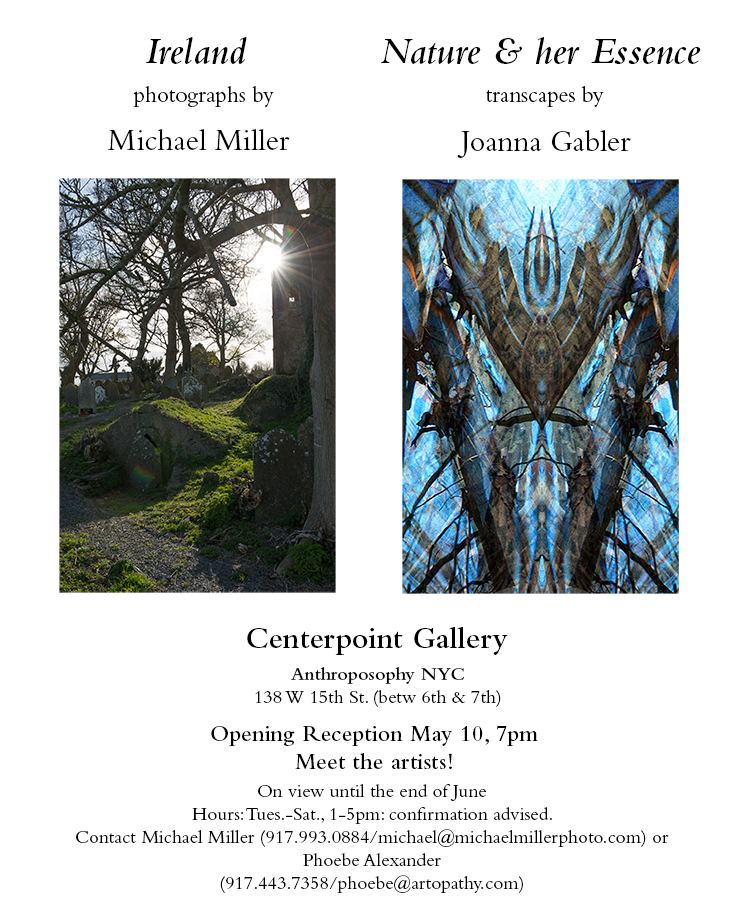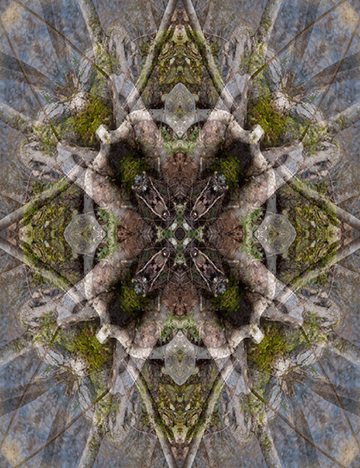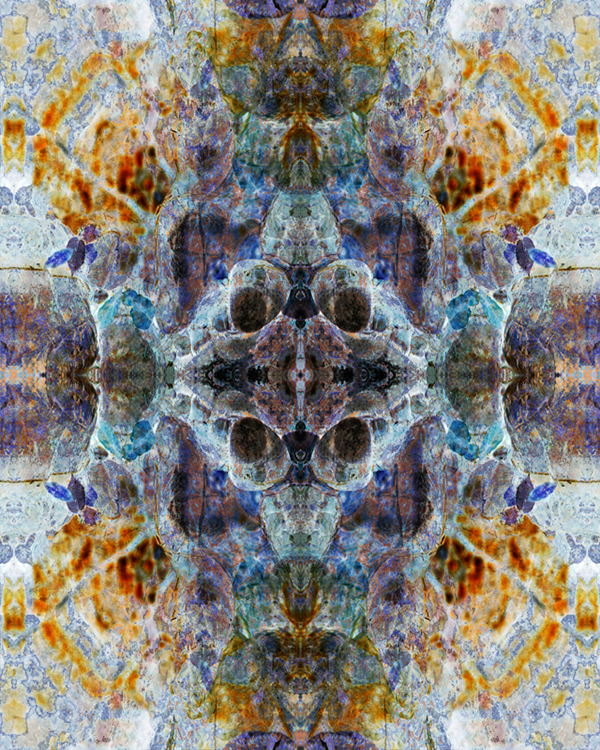On view in the Centerpoint Gallery is “Transcapes: Nature and Her Essence,” works by Joanna Gabler, painter and photographer. The art in this exhibition is the fruit of Joanna’s passion for photography and initiated by her studies in Anthroposophy—her quest for uncovering the mysteries of nature. Sensitive to color and form, she goes out into Nature, seeking her own personal vision. All her art is inspired by and co-created with Nature. By using photography and developing it further through the digital media as a creative tool Gabler’s goal is to capture the unseen energies behind physical reality and make them visible. Gabler calls her images “transcapes,” because they are landscapes transfigured by her artistic vision.
Nature and her Essence, Transcapes by Joanna Gabler on View at the Centerpoint Gallery, 138 East 15th St., New York, May 9 – June 27, 2013
“Transcapes: Vermont and the Berkshires” at the Bennington Museum, opened Saturday, May 12 and will remain on view until June 24.
The exhibition opens Saturday, May 12 and will remain on view until June 24.
Many of you know me and my work already, but I have included a few paragraphs about the exhibition and about my background.
“Transcapes: Vermont and the Berkshires” on View at the Bennington Museum
“Art is and always will be the sacred and secret gate between the invisible and the visible.” Joanna Gabler
Opening May 12 in the Regional Artists Gallery at the Bennington Museum is “Transcapes: Vermont and the Berkshires,” works by Joanna Gabler. Combining her two long-lasting passions, photography and nature, Gabler sees and photographs nature through the eye she developed over years of work as a painter—a medium she still works in. Sensitive to color and form, she goes out into Nature, seeking her own personal vision. All her art is inspired by and co-created with Nature. By painting and capturing the unseen energies behind physical reality and making them visible, using digital media as a creative tool, Gabler calls her images transcapes, because they are landscapes transfigured by her artistic vision. The transcapes in this exhibition are based on digital photographs of the Berkshires and Southern Vermont.
A painter, photographer, meditator, art therapist, and media artist, she also works with what she calls “Plant Music,” a relatively new form of creation for the artist. Electronically extracted from energy waves generated by living plants and inaudible to the human ear, Plant Music is digitally transformed into sound waves. Plant Music made its debut during “Inspired by Milosz” a performance created by Professor Omar Sangare in December 2011 at Williams College’s 62 Center for Theatre and Dance. “Plant Music” will be played in the gallery during this exhibition, which opens May 12 and remains on view through June 24. The opening reception, offering an opportunity to visit with the artist, will be on Saturday, May 19 from 3:00 to 4:30 pm.
For many years Gabler, inspired by her feeling for color, concentrated almost exclusively on oil painting as a medium for the finished work she presented to the public, while she worked actively in photography as a means to sharpen her vision and relate to the sensual world. In recent years she has experimented with mixed media and collage, and above all the rich, complex imagery she derives from photographs by digital methods.
The artist’s deep involvement with photography started in the early 1990’s, when she discovered the annual New York Orchid Show. It was at this time that Gabler became absorbed in macrophotography and in discovering the inner and intimate dimensions of the flowers. This developed into an ongoing series of flower portraits in oil and stimulated her lasting passion for nature photography. Her desire has always been to discover through the lens of a camera what is hidden from direct physical vision. Gabler started working with a digital camera in 2001, and this opened up many new possibilities for her.
In the spring of 2008, she expanded her artistic vision by combining her loves for photography and nature into one artistic expression. Through the use of advanced digital technology, she captures the unseen energies behind physical reality. Using digital editing tools to refine her vision beyond what she observes through the viewfinder, she breaks down the forms one sees in daily life. From these forms, new symmetries and color patterns are created which uncover the hidden life behind plants, rocks, buildings, and other objects. These new forms are at times totally different from the original object as observed in the world, and resemble a gemstone or a Mandala: Mandala as a sacred representation of the World and Mandala as a healing process. Adding new dimensions to the objects from which they originated, these images now represent something totally new.
Gabler has lived and worked in Williamstown for the past 10 years, and exhibits online as well as locally, in New York, and in Warsaw, including her most recent exhibition of Orchid Mandalas in Warsaw University Botanical Garden, September, 2011. Gabler’s paintings have been purchased by several American and European private collectors and institutions, and she has had several solo and group exhibitions in New York City and New England.
The Bennington Museum, located at 75 Main Street (Route 9), Bennington has the largest public collection of Grandma Moses paintings in the world as well as the largest collection of 19th century Bennington pottery. In the other 7 galleries, the museum presents a 1924 Wasp Touring Car, one of only twenty produced, military artifacts, one of the earliest ‘stars and stripes’ in existence, fine and decorative arts and more. On view through May 22 is “Memento Mori: The Art and Commerce of Gravestones in Bennington County” and through May 15 “Revealed: A Century of Women’s Underwear”. The museum is just a short ride from Manchester, Williamstown, and eastern New York, and is open every day July through October. Regular admission is $10 for adults, $9 for seniors and students over 18. Admission is never charged for younger students or to visit the museum shop and café. Visit the museum’s website www.benningtonmuseum.org or call 802-447-1571 for more information.


